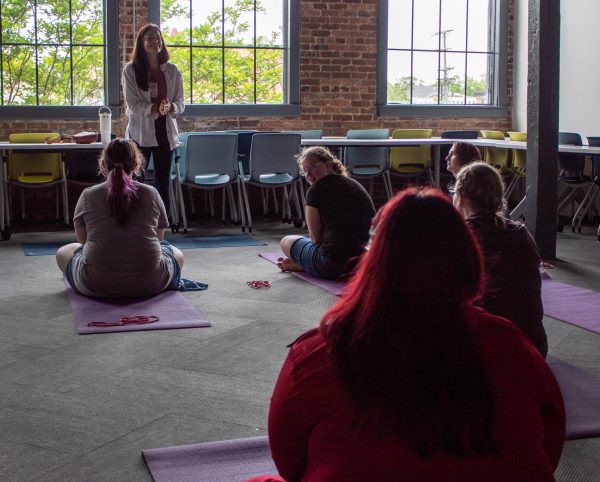Minority believers experience religious pressure in U.S.
April 22, 2016
America is becoming what some consider a multicultural mosaic.
One of the ideals that makes Americans different is religious beliefs. The First Amendment guarantees every person the right to practice his or her religion without interference from the government.
With around 7,000 students on campus, including international students and numerous faculty and staff, finding different religious practices is no surprise.
Not everyone feels others respect their choice of religion.
Though junior Molly Ezell, who practices Taoism, has not had any experiences she considers “bad” at UNA, she said people try to preach to her.
“(They) say I’m going to hell, and funny enough, say I’m an atheist since I don’t believe in their god,” she said.
People trying to convert others is an issue, said senior Jinseung Choi.
Choi said he follows the paths of Confucianism and Buddhism.
His beliefs include respect for others and himself, and when others do not respect him and his friends it makes him uncomfortable, he said.
Choi said people at UNA have tried to convert him, and he does not like it.
“Most of the time I try to calm (down) and find inner peace myself,” he said.
Others who practice eastern religions, like Islam, have also experienced ridicule in America.
Islamophobia is also a problem in the U.S., said assistant professor of communications Mohamad Elmasry, in an email.
He said he has experienced problems in the past, but has not had any issues in Alabama or at UNA.
“Islamophobia manifests itself in many ways, from the overt and obvious to the subtle and insidious,” he said. “I’ve been heavily profiled, placed on security lists and visited by the FBI. At airports, Customs and Border Patrol officers used to regularly interrogate me, often taking my laptop and copying files and personal photos.”
“I had to spend years and thousands of dollars to get myself removed from whatever lists I was on,” Elmasry said.
Though professor of Management Santanu Borah practices more of a way of life than a standard religion, he did grow up in a family that somewhat practiced Hinduism, while he attended a Catholic school, he said.
“We grew up in a multitude of beliefs that you cannot associate with a particular religion,” Borah said.
Every morning, students in the Catholic school would recite the Lord’s Prayer without putting emphasis on one deity, he said.
“We looked at our Father who art in heaven as being like someone who is at the top,” he said. “It didn’t matter whether you called him Jesus Christ or a Hindu god. So that is the kind of belief we had from day one. There is no one path for salvation.”
Borah said he has not experienced any problems while living here.
He said he has lived here for more than 24 years and has only been asked a few times what religion he is and if he attends church.
“I don’t wear my religion on my sleeve,” he said. “I have not seen anything that I would say is overly hurting my religious sentiments, or anything like that.”
Borah said he does not remember a time when UNA’s administration was not accepting of students’ various religions.
“At one point in time, we had about 350 students from India,” he said. “Many of them were born into a Hindu family, so they were raised as Hindus. We celebrated different festivals on campus. Whatever requests we have put in have been honored.”
It is important for people to understand everyone comes from varied backgrounds, and one person’s beliefs are not superior to another’s, he said.
“We have come through life in very different ways,” Borah said. “Our values and belief systems that we hold are shaped by our experiences, and that may not necessarily be entirely in the garb of religion.”










